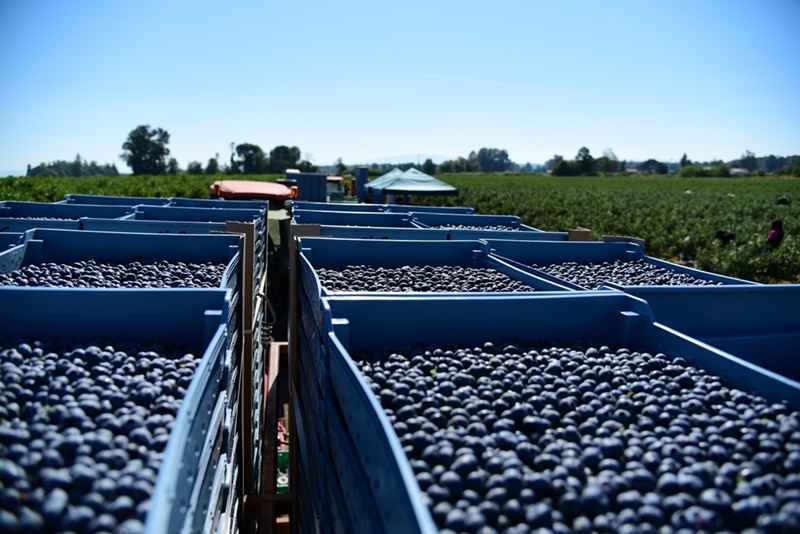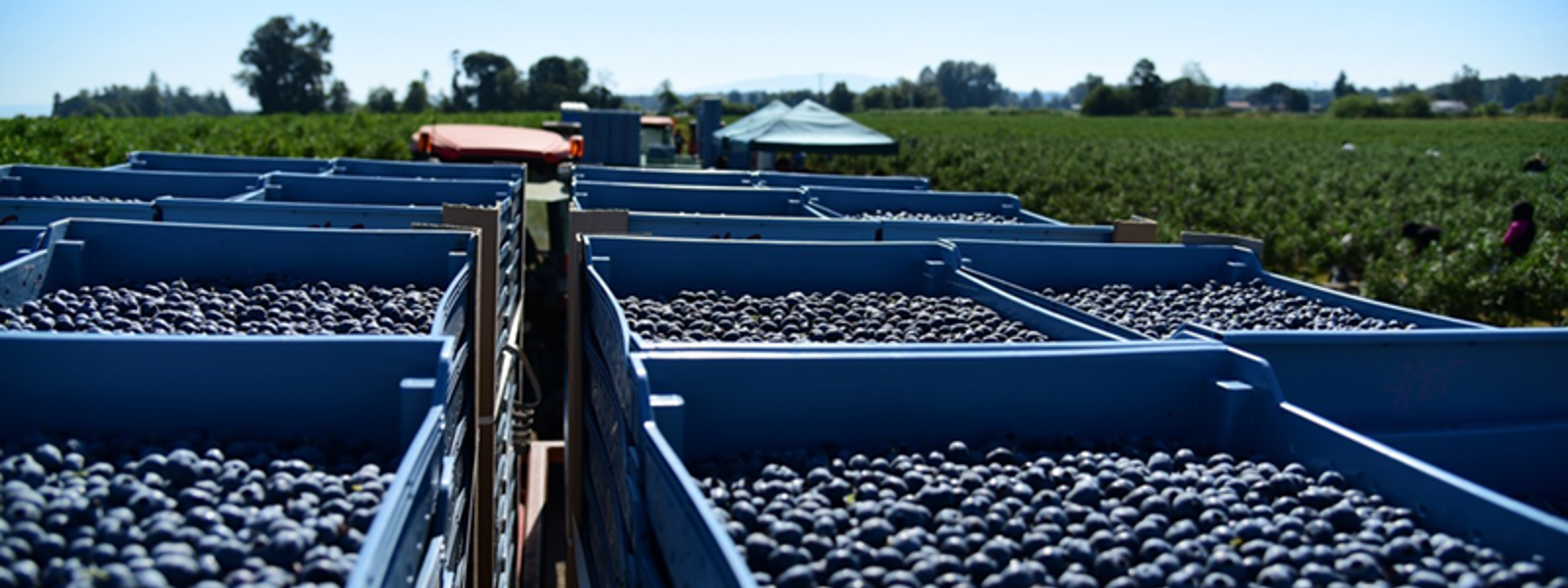Market share for organic berries, other fruits grows

Harvested blueberries line the fields of Porterville-based Homegrown Organic Farms. Sales of blueberries, strawberries, raspberries and blackberries have overtaken packaged salads as the top organic produce item.
Photo/Homegrown Organic Farms

By Bob Johnson
While packaged salads and clipped greens led the way as organic produce entered the mainstream, organic fruit may be poised for significant increases.
Fruit growers expressed optimism during the Organic Produce Network Grower Summit in Monterey last month.
“We have a customer base very interested in health and wellness and also sustainability,” said Scott Mabs, president and CEO of Homegrown Organic Farms. “We have a brand we’re working with.”
Mabs offered his insights during a session at the summit titled “Strategies and Insights: Expanding Organic Fruit Sales.”
Homegrown Organic Farms, with headquarters in Porterville, has produced organic citrus, stone fruit, grapes and blueberries for a quarter century. The company represents about 100 growers with more than 7,000 acres of organic farming.
The operation bills itself “as the first to bring California organic berries to market.” Its marketing emphasizes “the inherent health benefits of blueberries” along with “California’s dry and sunny climate conditions” for growing blueberries “that are setting a new standard in flavor and size.”
Berries, including blueberries, strawberries, raspberries and blackberries, have eclipsed packaged salads as the No. 1 organic item in the produce department. U.S. berry sales topped $1.6 billion in 2023 and further increased by more than 13% in the first two quarters of 2024, according to the Organic Produce Network.
Despite organic berries’ 56% price premium over conventionally grown varieties, the OPN reported in 2023 that “consumers are willing to pay significantly more for the organic version.” It also noted that “organic blueberry production will continue to grow as areas find economical ways to grow fruit organically.”
There is evidence other organic fruits are also gaining traction.
Sales of organic apples were up 22% in the second quarter of 2024, according to Category Partners, which provides market data analysis for the Organic Produce Network, a coalition of major retailers and the organic growers that supply them.
Sales of premium organic apples are trending even better. West Mathison, president and CEO of Stemilt Growers, said sales of organic Honeycrisp apples were up 35% for the quarter.
Stemilt is a major Washington-based grower of apples, pears, cherries and summer fruit that devotes half its acreage to organic production.
“The organic apple shopper eats more apples and is less price sensitive,” Mathison said.
Some retailers are actively promoting organic as the wave of the future.
“Our customers are hungry for organics,” said Daniel Spivey, national director of produce for fruit at Sprouts Farmers Market. “We’re trying to increase demand for organic. Our younger customers are willing to spend a little more for value.”
While there is a durable base of consumers willing to pay more for organic produce, participants in the session on fruit agreed it is important to narrow the price gap.
“We have to find varieties that taste great and are horticulturally efficient,“ Mathison said. “Cosmic Crisp is more stable than Honeycrisp. You have to have something with the genetic aptitude for yield and pack out.”
The price difference between organic and conventional has narrowed substantially over the years, and numbers for the second quarter of 2024 show the gap has narrowed a little more this year.
“With apples, if you price it 50 cents a pound more than conventional, you move product—not so much at $1 more a pound,” Mathison said.
As a long-term goal, some in the produce business say they hope to see the premium disappear completely.
“At Sprouts, at some point we want the retail price of organic and conventional to be the same,” Spivey said.
While growers and retailers work toward price parity, some organic fruit growers say they believe they have a messaging challenge.
“We put a lot of work into getting information out to the consumer,” Mabs said. “This is not just an apple or an orange; this fruit has value for health, the environment and society.”
(Bob Johnson is a reporter in Monterey County. He may be contacted at bjohn11135@gmail.com.)




